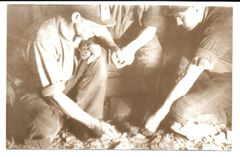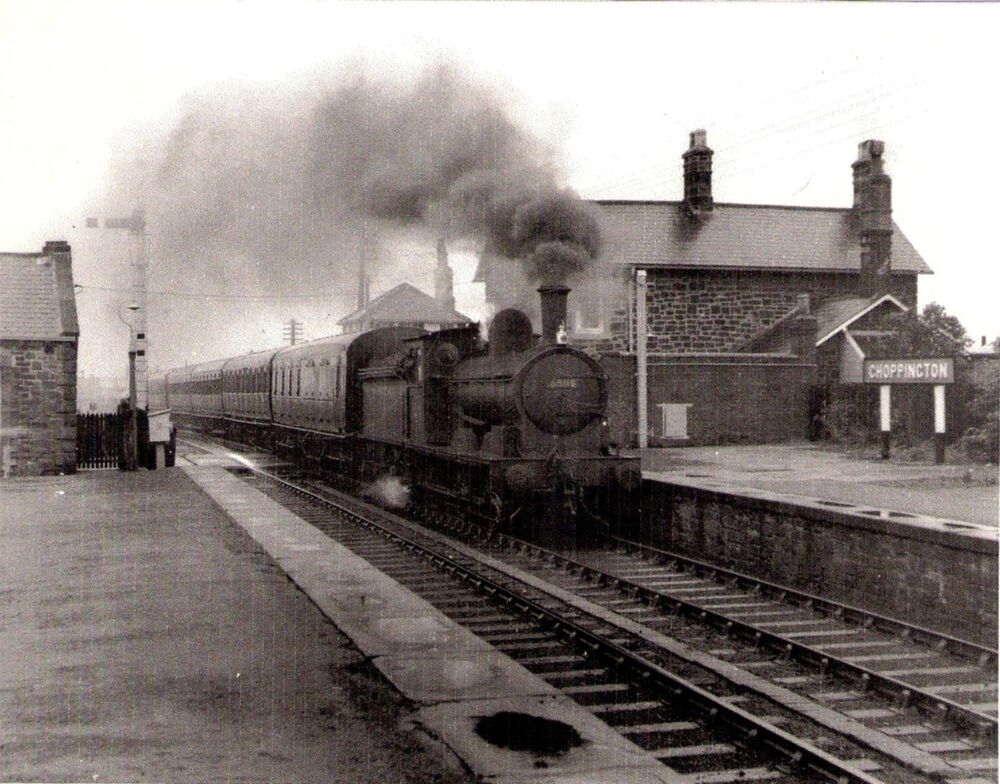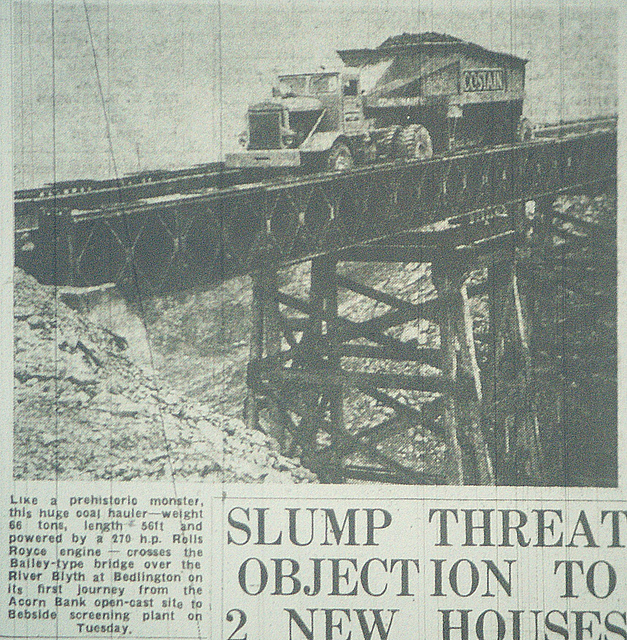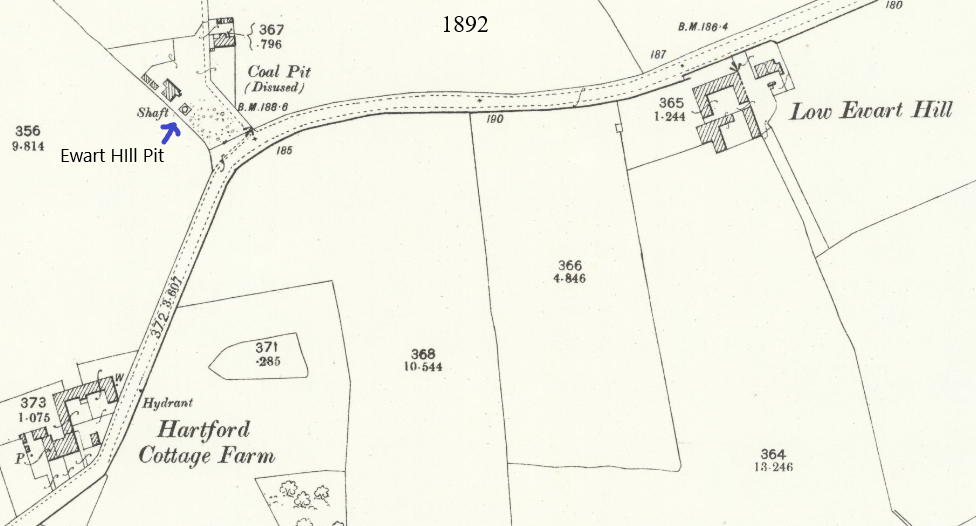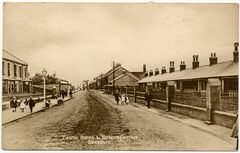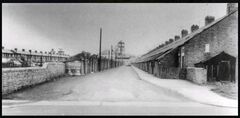
James
Members-
Posts
213 -
Joined
-
Last visited
-
Days Won
53
Content Type
Forums
Gallery
Events
Shop
News
Audio Archive
Timeline
Everything posted by James
-
The 3 members of the Smail family who lived and worked in the shop in the 1950’s were Edwin, Catherine and Isabella. Isabella was the organist at St Cuthbert’s for many years. Their mother was Jane Isabella and their father was John Robert and according to the headstone posted by Maggie, he was the organist for over 50 years. What you can’t see on the photo is the last inscription on the headstone that was for Catherine who died in 1990. The photo attached is the headstone for Edwin and Isabella and this is also in St Cuthbert’s graveyard.
-
-
From the album: Doctor Pit and Rows
Taken by Willie Ward 1955 -
From the album: Doctor Pit and Rows
Photo taken by Willie Ward 1955 -
Black Bull annual - darts/leek club trip ????
James replied to Alan Edgar (Eggy1948)'s topic in Chat Central
Sid Newman lived in No 1. Am I correct in assuming that Joyce Dagless is your wife’s sister? She worked at the glove factory and married Colin Hall who was undermanager at Bates Colliery and they moved to Smoky River coal mine when it opened in the late 60’s. -
Black Bull annual - darts/leek club trip ????
James replied to Alan Edgar (Eggy1948)'s topic in Chat Central
The Redpath's from Hollymount Square - Brian lived in No. 3 (or was it No. 2?) and his dad was called Fenwick. Robert lived in No. 53 and his dad was called Jimmy. Fenwick and his elder brother Jimmy both worked at the Doctor Pit. -
Top right holding banner - Peter Muldoon 2nd from left front row - Jimmy Redpath Centre front row holding scroll - Anty Thompson I can confirm Lawrence Thompson and Stuart Young are correct. I recognise the others but cannot remember their names. They were committee members of the Doctor Pit branch of the NUM
-
-
I have entered the coordinates of the Francis Pit from an old map and the red map indicator should be its exact position. If you enter the coordinates shown on the photo on a GPS if should take you there.
-
-
From the album: Doctor Pit Welfare Park
-
-
Bed Amateur FC 1919-20 season.jpg
James commented on Alan Edgar (Eggy1948)'s gallery image in Sports
I’ve never heard of Bedlington Amateur FC but it’s a great photo with amazing quality. The photo mentions Price’s field at Hollymount and having grown up around Hollymount I looked closely at the photo to see where it was taken and it definitely wasn’t Hollymount. Before Hollymount Square was built there was a field between the Bell’s Place gardens and Hollymount Avenue but not big enough for a football field. At the top right of the team photo you can see the two chimneys of the Doctor Pit so the buildings behind the team are those down Vulcan Place and looking closely through the trees on the extreme right of the photo is the Whitley Memorial School. The photo I have attached of the school with the newly built houses of Hollymount Square would have been taken in the early 50’s (presumably taken from the church tower) and shows prefab classrooms that were only built in the late 1940’s. I have marked in green the spot where I am pretty sure the team lined up for the photo. Presumably the photo was taken at the football field where they played so it looks like it was on the field next to the school, part of which by the 1950’s were allotments. -
Old Colliery Row 1897 OS (2).png
James commented on Canny lass's gallery image in Historic Bedlington
The photo is taken from No 4 Old Colliery Row looking up towards the Black Bull. The gable end behind Mr Hemsted is No 6 Bell’s Place and this can also be seen in the google maps photo looking at the same view about 100 years later. The section of Bell’s Place that was demolished in the late 1940’s ran parallel and behind Old Colliery Row. To the right of the row were the toilets, and gardens. There was gas lighting and a couple of outside taps - no electricity. -
Old Colliery Row 1897 OS (2).png
James commented on Canny lass's gallery image in Historic Bedlington
-
This photo taken by Willie Ward shows 3 miners ‘cavilling’. This was a system used by teams and individuals on ‘piecework’ whereby lots were drawn to decide on their workplace. The ‘cavil’ was the workplace number written on the piece of paper. The system prevented management favouring a particular team or individual and also meant that it was the luck of the draw whether you ended up in a section with good or bad conditions which could often affect your earnings.
-
From the album: Doctor Pit and Rows
-
-
It was coal in the trucks not waste, The waste (overburden) from the opencast was put back in the “hole” and the raw coal transported to Bedside Colliery wash plant for cleaning. The photo shows the first Costain truck on the bridge.
-
I have no dates of the years that the Ewart Hill pit was in operation but the map shows it was disused in 1897. It had only one shaft 361 ft. deep and worked the Low Main Seam. Following the Hartley Colliery disaster in 1862 when 204 men and boys died of carbon monoxide poisoning, all collieries had to have at least 2 shafts so that in the event that one shaft was out of action or damaged in some way there was a second shaft for the underground workers to use as a means of escape. I assume from this that it must have closed before 1862. If anyone can download an earlier map of the Ewart hill area it may give some idea of when it was in operation. Long after the Ewart Hill Pit had closed, the Doctor Pit mined a connecting roadway to the shaft in the Low Main seam workings and used it as a downcast ventilation shaft. You can see the shaft “cap” (a concrete cover) from the road as you walk past the farm The photo shows the Low Ewart Hill farm that was demolished in the 1950's and the coal beneath it mined by the opencast. At the same time the road that used to pass this farm was diverted. This area is now the golf course.
-
Easton Holmes & Rothesay Terrace.jpg
James commented on Alan Edgar (Eggy1948)'s gallery image in Historic Bedlington
In one of Evan Martin’s books, he says that Easton Homes was built in 1907 and was named after Emily Easton who financed the building of the 12 cottages as well as St John’s Church. She was a director of the Bedlington Coal Company, owners of the ‘Aad Pit’ (Bedlington ‘A’ colliery). The cottages were built for retired miners who had worked for the company for least 50 years. -
Before they moved to Shiney Row, Andy and Flo Turnbull lived at the “bottom end” in No 27 Bell’s Place with their sons Bill, Bobby and Andy and our family lived near to them. Florence says they kept chickens in the garden at Shiney row. At Bell’s Place they not only had chickens but they also had a pig that the neighbours helped to feed with waste food we called “slops”. I’ll not mention what happened to the pig but I think you can guess! I have been hoping for years to find a photo of Bell’s Place and I thought that perhaps Frances may have one passed on to her by her grandparents. Bell’s Place was demolished along with Old Colliery Row in the late 1940’s and Hollymount Square was built on that site.
-
In the photo, No 1 is the first house with the shed in front of it. I assume the shed is in the side garden that Florence refers to. Being the end house it would have been the only one with a side garden. (I think Andy and Flo Turnbull lived there.) The Gardens on the left of the picture were the Doctor Terrace gardens. The Shiney Row gardens can’t be seen – they were on the south side of the row.
-

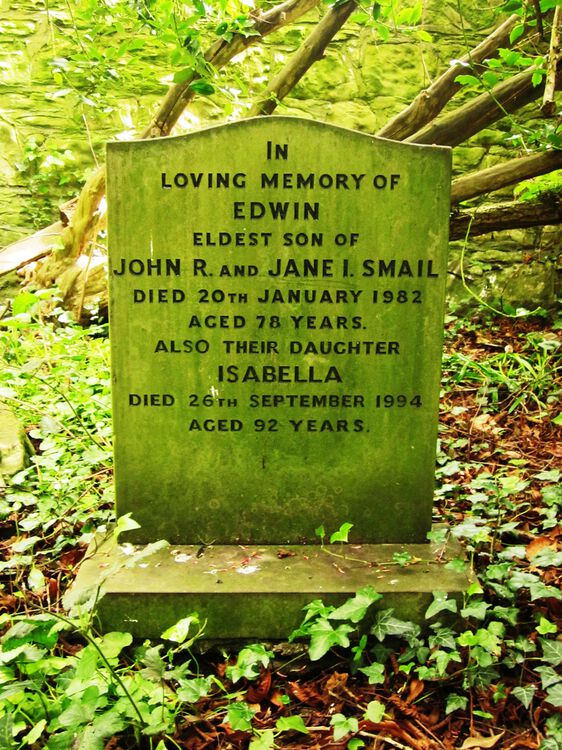


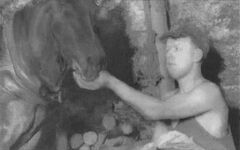
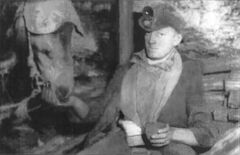
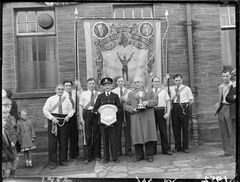
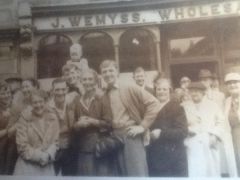
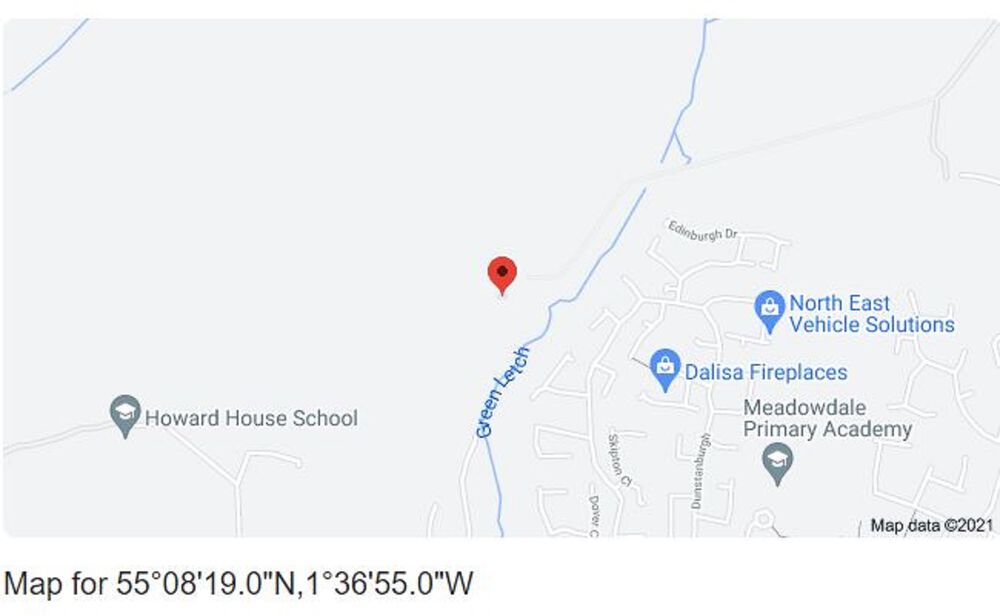
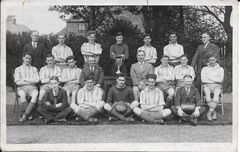
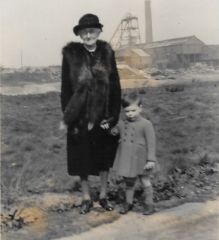
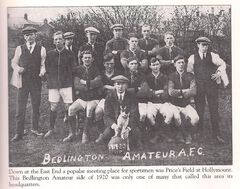
.png.8ed7f3d4753c93e5f45344da507f8d26.png)
